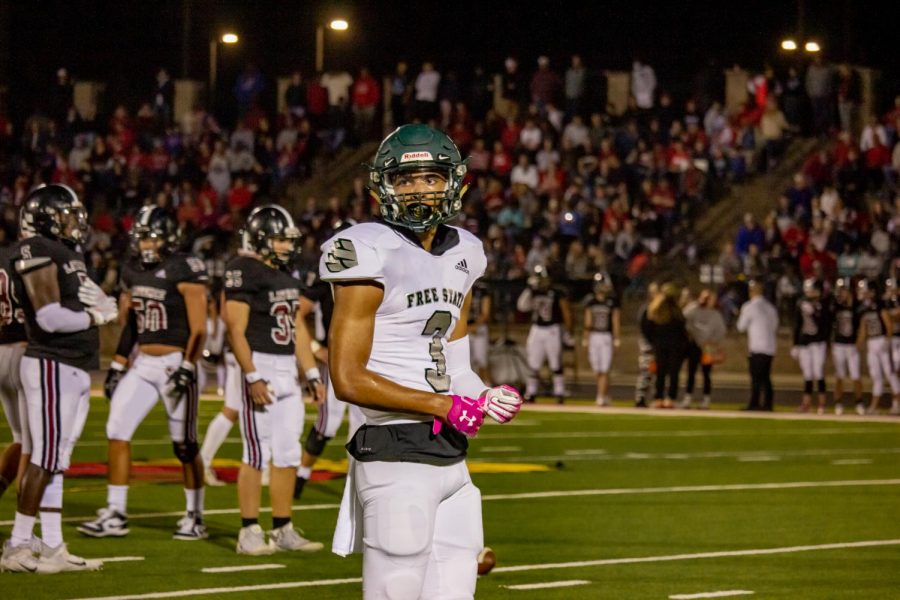“My religion is why I am who I am,” sophomore Anna Hansen said. “It gives me guidelines on how to live my life.”
Hansen is Mormon, a religion that believes the Godhead is three separate beings, Father, Son and Holy Ghost, and that God is their savior. Their founder, Joseph Smith, is said to have discovered the golden plates that, translated, became the Book of Mormon.
Each student has their own beliefs, whether they worship a god, multiple gods, or none at all. Some may show their faith in different ways, but no matter what, their beliefs help to steer them down the road of life.
Practices and Rituals
Some students go to church every Sunday, some go to Confession (acknowledgment of sin) when they see fit, some just say their prayers each night. It all depends on the religion.
“In a typical week, I attend an early morning seminary every school day,” Hansen said.
Her family goes to church every Sunday together. Every Wednesday, they bake cookies, play games and make cards for people who are sick.
Hansen said going to youth group and other activities with the same group of kids makes it so they can uplift and support each other.
“We get to hang out with kids with the same beliefs,” she said.
Other religions, such as Islam, will fast as part of their practices.
“The sun rises, we stop eating,” sophomore Gufran Al Ghafli said. “And when the sun goes down, that’s when we eat.”
Muslims fast for several different reasons. It is one of the disciplines their God, Allah, asks them to do. It is also used to practice a long-standing tradition and to maintain piety.
Along with fasting, Muslims also pray five times a day to Allah. They pray evenly throughout the day so that they are constantly reminded of their God and his guidance.
“We have to wash our face, hands and legs before we pray,” Ghafli said.
Prayer is an important aspect of many religions.
First Christian Church pastor David Rivers said, “We pray as a family wherever we go.” Rivers said some of the places his family will pray are on car rides and at dinner tables.
He wants to give his children a solid moral foundation by teaching them Christian values that are important to him and his wife. According to Rivers, these values help them to understand “what you believe and why we are what we are.”
Youth Taking Charge
For students who want to surround themselves with other believers and talk about their faith journey, there are many organizations formed for this purpose. For instance, Free State has a Christian club called CORE.
Jenny Gottstein, one of five leaders of CORE, states their synopsis: “Christians On a Revolutionary Edge [CORE] is a group for Christian fellowship, where new friendships can be made and relationships can be built between others and God.”
CORE Club is a group of Christian students from different backgrounds, churches and ages who come together to learn more about their God and his works.
“CORE is such a blessing to me,” Gottstein said. “Going through a week of school, stress sets in, and it’s great to know that Thursday night I will go to CORE and be reminded that God is in control and He will guide me through times of trouble and times of joy.”
She says it’s been the greatest thing about her high school career.
“God has blessed Free State with CORE and, God willing, He will keep it strong for the many years to come!”
But while Free State’s Christian organizations, such as CORE and Fellowship of Christian Athletes, may serve the spiritual needs of those from majority religions, the school’s lesser known religions often seek kinship and faith elsewhere.
Junior Quinlan Carttar spends many of her Sundays meditating at a Buddhist temple on New York Street.
“Some people don’t get it,” Carttar said. “My parents aren’t Buddhist, and it’s not exactly common. Kids our age don’t always make such grandiose life decisions on their own, like deciding to independently follow a religion. That’s part of what Buddhism is about for me: independence and freedom.”
Buddhism is centered around the concept of dharma, the teachings of the Buddha–or, as Carttar explains, “the way things are, like basic reality that doesn’t change day to day.”
“Buddhism changes my life every day,” Carttar said. “It’s not exactly a religion, the way I practice it. It’s more of a lifestyle, and a state of mind.”
Restrictions in Worship
Depending on the religion, some families may have strict rules for their children.
Ghafli has been wearing a hijab, a head covering, since she was nine years old. Many Muslim women believe that Allah requires them to cover their heads.
“When we’re in our house we don’t have to wear it,” Ghafli said. “Unless there are men there who are not family.”
Ghafli must wear the hijab whenever she goes out in public. Once she is married, her husband will be one of the few who can see her without the hijab.
Even though the different religions aren’t the same, some of them have similar ways to demonstrate faith.While Muslims have a head dress to wear to respect their religion and people around them, many Mormons have similar ways to show respect through dress and behavior.
“I am not allowed to wear revealing clothing, date until I’m 16, drink caffeinated drinks,” Hansen said. “We also don’t swear, and I can’t hang out on Sundays.”
Hansen said a lot of her friends will hang out then [Sundays]. Although she sometimes feels left out of her friends’ activities, she has accepted this rule for fifteen years and understands the meaning.
Rivers and his family have their own set of rules for their kids.
“It’s responsibility specific,” Rivers said. “As they grow up, rules will change and, depending on the responsibility showed, they [the rules] will increase or decrease.”
Accepting Diversity
When people aren’t familiar with other religions, they can often create their own stereotypes.
“People will ask me funny questions,” Hansen said. “It’s because they don’t understand our religion.”
Hansen gets asked a few questions that are repeated a lot.
“I get asked, aren’t you guys not allowed to drive? And do all Mormons have to play the piano?” Hansen couldn’t help but smile at the misconceptions. “Almost all the kids in my Church play the piano, so some people think it’s part of the religion.”
Hansen is not the only one who sometimes feels misunderstood for her religion.
Rivers said he is targeted a lot for being a Christian, inside and outside the church. Many people accuse him for doing something wrong.
He said members from his own religion will often criticize him for how he preaches, and outsiders criticize him for his beliefs.
“Belief is the criticism,” he said, speaking for his religion.
Other people, though, don’t feel criticized, one being atheist sophomore Ian Pepin.
“I feel like every other student,” Pepin said, adding that his friends accept him for his beliefs. “It’s one thing I like about Free State. No one bothers me about my religion.”






![After receiving advice from her students, orchestra director Judy Erpelding marks her music. Although the director normally makes the artistic decisions, Erpelding will often consult her students and hear their opinions on what sounds good and what they should try out. “[The students] are the heart of the program, not me,” Erpelding said. “I know they will carry that on and I will miss them. Making great music with them, being able to challenge them, taking their inspiration.”](https://www.fsfreepressonline.com/wp-content/uploads/2023/05/Roust_Erpelding_5_11_23-600x900.jpg)








Virgie Alexander • Sep 27, 2012 at 11:45 am
FYI authors of this article. It is quite good and broadly covers many points of view. One thing you should realize, however, is the “Allah” is the Arabic word for God so even mid-Eastern Christians call God “Allah”. There isn’t a “their’ God and “our” God it is one and the same. Co-exist – Yeah!